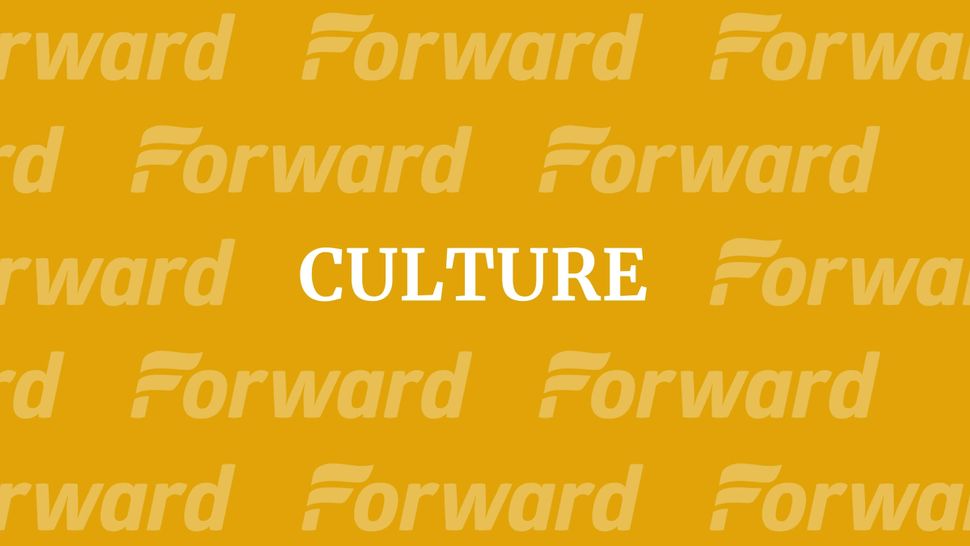‘The Sacred Table’: Moving Beyond Our Food Comfort Zones

Since I started working on “The Sacred Table: Creating a Jewish Food Ethic” over a year ago, I have noticed something interesting about people’s reaction to this anthology which explores the Reform Jewish approach to food and food production. Upon viewing the wide range of topics discussed in the book (essays subjects range from ritual laws to environmental challenges to worker’s rights, to name a few) many people read “The Sacred Table” as an affirmation of the values they already uphold. I find this fascinating, as I intended this volume to challenge the Jewish world to stretch their approach to food and to increase their passion for ritual and ethical kashrut.
In some ways, the book becomes a Rorschach test for how individuals define their personal kashrut (think: Jewish way of eating). So, as I meet readers, people will proudly exclaim remarks like: “About time the Reform Movement teaches our people to keep kosher!” or “I love your eco-book!” After a lecture, one reader even proudly told me that she planned to read only the chapters that apply to her. Yikes! The purpose of the anthology is to explore the challenges of navigating personal and communal food choices — all Jewish aspects of eating and food production. It is not a book about one value.
In 50 chapters, authored by over 40 Reform rabbis and leaders, “The Sacred Table” explores various liberal approaches to ritual kashrut. In the book, kashrut is viewed as a multifaceted Jewish relationship with food and its production, integrating values such as ethics, community, and spirituality into our dietary practice. In exploring these complexities, the book discusses meat minimalism, the environmental impact of eating bananas and creating a new Farm Bill to improve nutrition in this country. With this diverse buffet of food value choices, why do people first hone in on their pet values? This phenomenon makes me wonder how much of our food talk is an affirmation of those values with which we agree? At what point, do we expand beyond the menu of values to which we ascribe?
Members of the Jewish food movement may be drawn into these important conversations by virtue of the topics which automatically engage them, but along the way they are exposed to new and challenging ideas which can be discomforting. We only grow when we leave our place of affirmation and safety. “The Sacred Table” celebrates the ideology of an educated choice. However, to choose one must look at the fullest range of choices. The questions posed by the book’s essays present a diverse range of voices, opinions, and options, highlighting the Jewish values that shape our food ethics and provide ideas about how to navigate these choices. I know that people are most likely to pick up the book, because it affirms a personal deeply held truth. Yet, I also hope the readers will look beyond their comfort zone to explore something new. While it is certainly worthy to strengthen one’s current resolve, we all need to move beyond the inertia of the known.
Following this season of Passover and its unique way of eating, we have the opportunity to reconsider our Jewish dietary practice, rather than merely restarting where we left off before the hametz was put away. As we sweep away the matzo crumbs, what better time to stretch our dietary choices to dedicate ourselves to new values? Therefore, when we approach the buffet of food values, we must be prepared to put down the mirror and, instead, to forge ahead with open minds and hearts in order to eat well.
Rabbi Mary L. Zamore is the editor of The Sacred Table: Creating a Jewish Food Ethic. Available from CCAR Press, and Amazon *
The Forward is free to read, but it isn’t free to produce

I hope you appreciated this article. Before you go, I’d like to ask you to please support the Forward.
Now more than ever, American Jews need independent news they can trust, with reporting driven by truth, not ideology. We serve you, not any ideological agenda.
At a time when other newsrooms are closing or cutting back, the Forward has removed its paywall and invested additional resources to report on the ground from Israel and around the U.S. on the impact of the war, rising antisemitism and polarized discourse.
This is a great time to support independent Jewish journalism you rely on. Make a gift today!
— Rachel Fishman Feddersen, Publisher and CEO
Support our mission to tell the Jewish story fully and fairly.
Most Popular
- 1

Fast Forward Ye debuts ‘Heil Hitler’ music video that includes a sample of a Hitler speech
- 2

Opinion It looks like Israel totally underestimated Trump
- 3

Culture Cardinals are Catholic, not Jewish — so why do they all wear yarmulkes?
- 4

Fast Forward Student suspended for ‘F— the Jews’ video defends himself on antisemitic podcast
In Case You Missed It
-

Fast Forward In first Sunday address, Pope Leo XIV calls for ceasefire in Gaza, release of hostages
-

Fast Forward Huckabee denies rift between Netanyahu and Trump as US actions in Middle East appear to leave out Israel
-

Fast Forward Federal security grants to synagogues are resuming after two-month Trump freeze
-

Fast Forward NY state budget weakens yeshiva oversight in blow to secular education advocates
-
Shop the Forward Store
100% of profits support our journalism
Republish This Story
Please read before republishing
We’re happy to make this story available to republish for free, unless it originated with JTA, Haaretz or another publication (as indicated on the article) and as long as you follow our guidelines.
You must comply with the following:
- Credit the Forward
- Retain our pixel
- Preserve our canonical link in Google search
- Add a noindex tag in Google search
See our full guidelines for more information, and this guide for detail about canonical URLs.
To republish, copy the HTML by clicking on the yellow button to the right; it includes our tracking pixel, all paragraph styles and hyperlinks, the author byline and credit to the Forward. It does not include images; to avoid copyright violations, you must add them manually, following our guidelines. Please email us at [email protected], subject line “republish,” with any questions or to let us know what stories you’re picking up.















